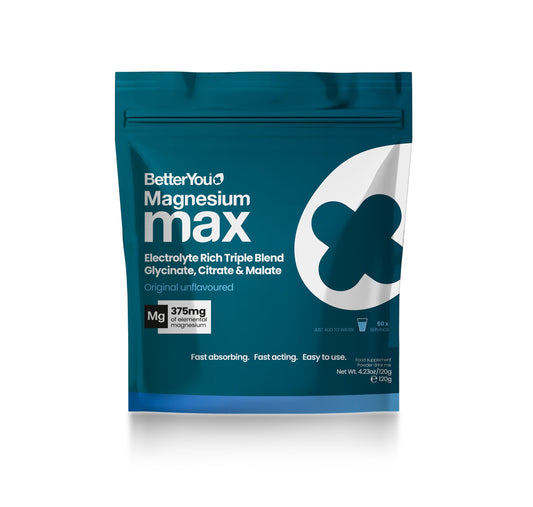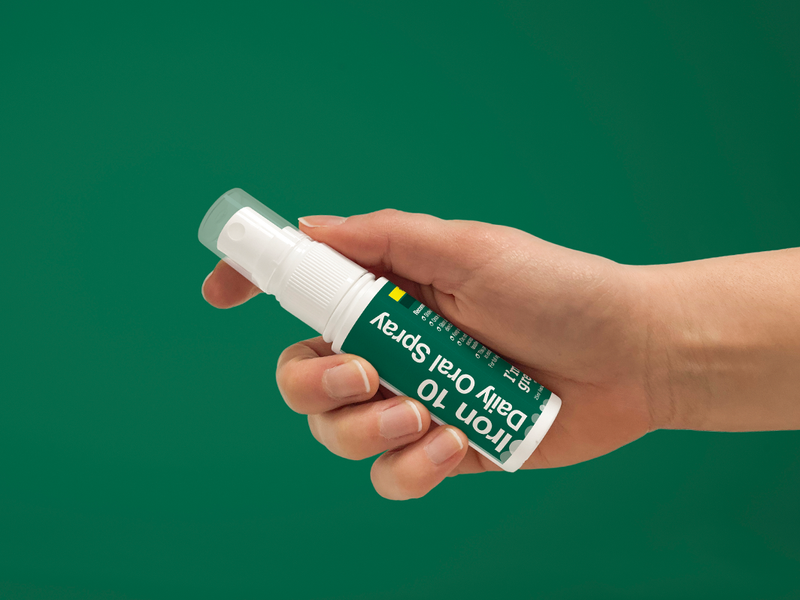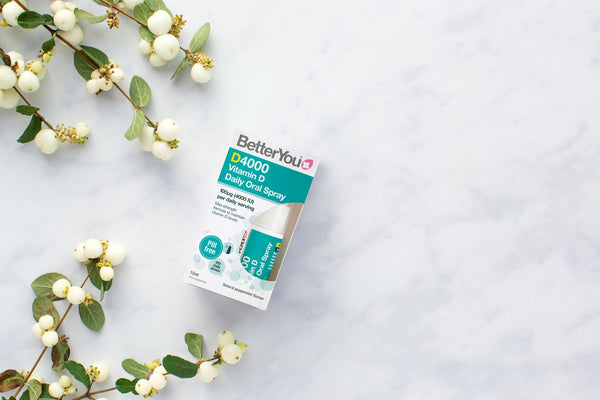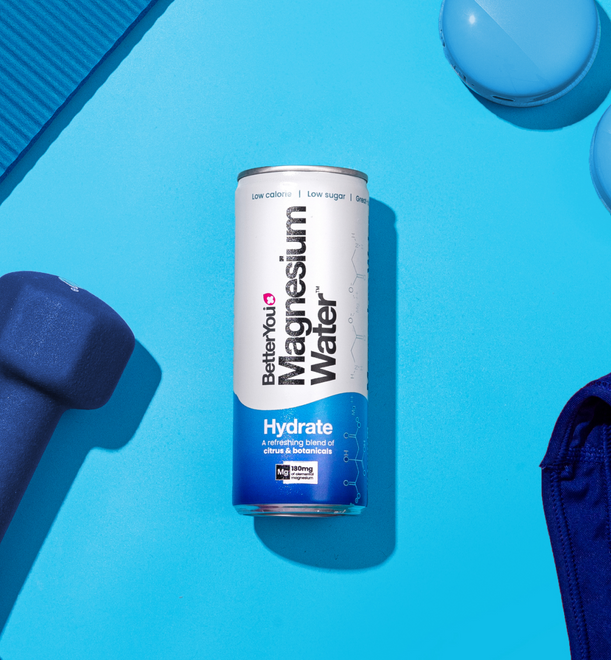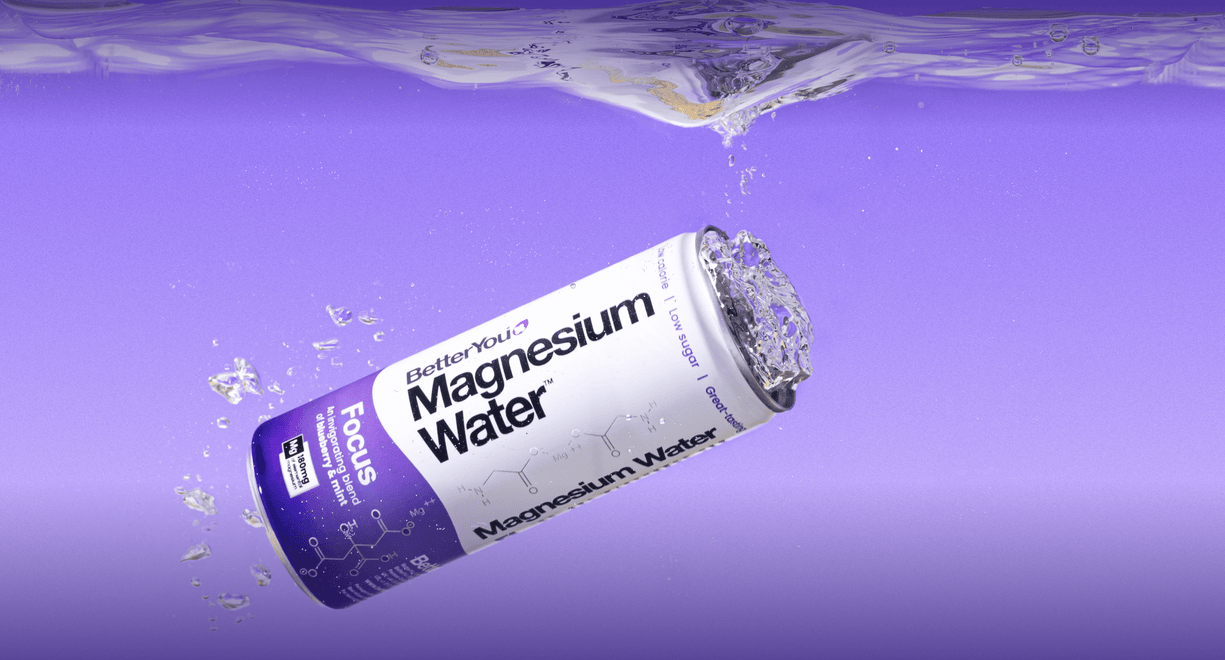Iron and periods have a intertwined relationship due to the fact that iron is naturally occurring in blood. During the years of menstruation, it may be recommended for those who have periods to supplement to encourage optimal iron levels. Our expert guide takes you through the relationship between this mineral and the menstrual cycle, and how to avoid deficiency.
Table of Contents:
- How Periods Affect Your Iron Levels
- Do Periods Cause Iron Deficiency?
- What Are the Signs of Iron Deficiency?
- Symptoms of Heavy Periods
- Should You Take Iron During Your Period?
- How to Test Your Iron Levels
- Pill-free Iron Supplements for Periods
How Periods Affect Your Iron Levels
Periods are a natural part of the menstrual cycle wherein the uterus lining sheds and leaves the body through the vagina. During this time, the person will experience a bleed. Blood and periods contain iron, therefore losing a significant amount each month may require you to maintain your levels with iron supplements.
Iron is directly affected by periods. They have an intertwined relationship due to the fact around 70% of the body’s iron is found in haemoglobin in red blood cells. Therefore, with each month, women and those who have periods may be at risk of low iron levels. This might be a more common occurrence for those who have heavier flows and lose more blood and iron over their period.
These periods or bleeds are one of the four stages of the menstrual cycle. They can come along with various symptoms, and these may be soothed with women’s health supplements.
Do Periods Cause Iron Deficiency?
Heavy periods can lead to significant blood loss leaving you susceptible to iron deficiency anaemia from a lack of iron. This is when the blood lacks the healthy red blood cells so integral to internal oxygen transportation. Iron deficiency is the term for when your iron levels drop below the recommended amount. This can have harmful side effects that can be detrimental to your health.
In the National Diet and Nutrition Survey, around 50% of teenage girls, and a third of young women had less than the lower reference nutrient intake (LRNI). This can leave them at risk of deficiency, and they may be advised to take supplements to reach optimum levels.
What Are the Signs of Iron Deficiency?
Alongside premenstrual symptoms, you don’t want to risk the symptoms of iron deficiency too. Some of the most common signs of low iron are:
- Tiredness and lack of energy
- Craving non-food items
- Shortness of breath
- Noticeable heartbeats
- Pale skin
Symptoms of Heavy Periods
Heavy periods may cause you to lose more iron than those with a lighter flow. Some people may have a varied flow level from month to month. Exercise, stress, and changes in your weight may cause lighter periods. If your periods are significantly lighter than usual, it may be worth consulting your Doctor. No matter your flow, ensuring you intake the nutrients for a healthy period is essential throughout your cycle.
Those with heavier flows may be more at risk of low iron levels from their period. These heavier flows are caused by imbalances in hormones, and some may be more likely to have heavier periods than others. The signs of a heavy period may be:
- Having to very regularly change your sanitary products, perhaps every hour
- Having to change your sanitary products during the night
- Feeling especially weak and tired on your period
- Having periods which last longer than 7 days
Should You Take Iron During Your Period?
During your period, it may be advised to take an iron supplement to help increase your levels and see the benefits of iron.
According to the NHS, the recommended iron intake per day is:
- 14.8mg for women aged 19 to 50
- 8.7mg for women over 50
As the menopause occurs between the ages 45 to 55, it is important for those who are not menopausal, and still having periods, to consider if they may need to take iron supplements. This is especially important for those prone to low levels normally or people who experience heavy periods. This helps to keep their daily intake of iron at the recommended nutrient reference value, and avoid risk of deficiency.
Calcium can also limit the body’s ability to absorb iron, so you may want to ensure your calcium levels are not too high in order to better support your periods and iron. Whilst vitamin C supplements can also help to enhance iron absorption.
How to Test Your Iron Levels
It is possible to test how your period and iron levels are affecting each other, whether you consult your Doctor, or find an at-home iron test. Either way, you can get an indication on how your period and iron interact, as well as your dietary intake.
A test will measure the amount of ferritin in your blood, which is a marker for your stored iron levels. To test, you can follow these steps:
- Order your iron test online.
- Provide a wet sample of blood by filling a small vial using a quick prick of the finger once your test arrives.
- Use the prepaid envelope to send to our UKAS accredited lab partners - they will analyse your sample.
- Receive your results via email within 10 working days of the lab receiving your sample.
- We’ll provide a bespoke supplementation plan to help you increase or maintain your nutrient levels, once your results have been sent.
By knowing your results and getting our bespoke supplementation plan which comes with all of our health test kits, you can make the necessary changes to ensure your levels remain optimal throughout your periods.
Pill-free Iron Supplements for Periods
To support your iron levels during your periods, BetterYou’s pill-free supplements provide an effective, hassle-free solution. Our vitamins and minerals come in the form of oral sprays, which means you simply spray into the mouth, with the need to be taken with food or drink.
This formula means the mineral is absorbed into the bloodstream, rather than passing through the digestive tract. This helps to avoid the side effects of iron tablets, which can be tough on the digestive system. Therefore, it’s even easier to support your iron and periods at the same time.
Supplementing with BetterYou
At BetterYou, we specialise in complete nutritional supplementation. From magnesium supplements to help you sleep, to vitamin D supplements for healthy bones, support your healthy lifestyle today.
